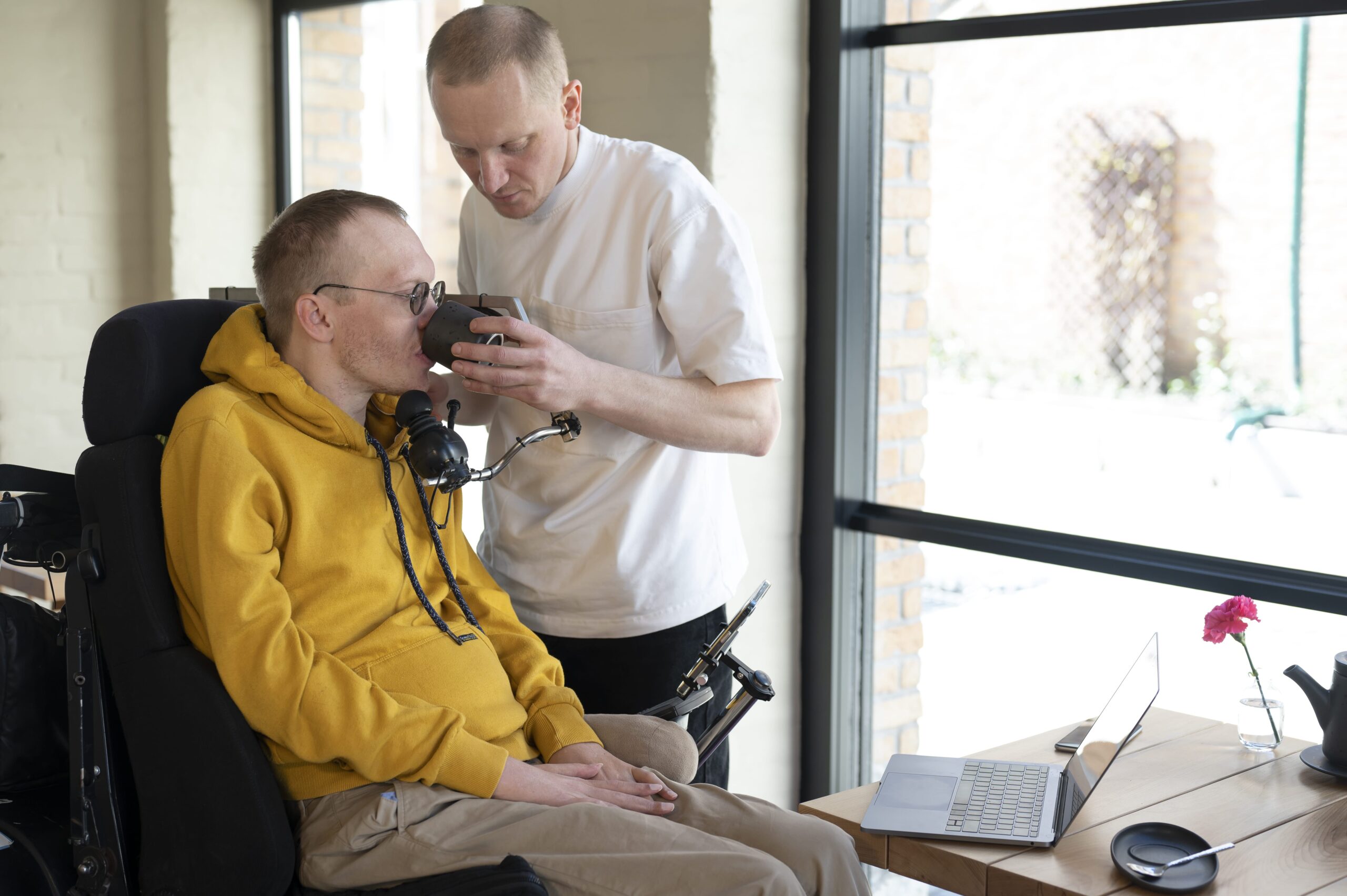The National Disability Insurance Scheme (NDIS) is an important program in Australia that provides assistance and funding to people with disabilities. Core Support is a critical component of the NDIS that provides funding for everyday activities associated with a participant’s life plan and goals. This category is the most flexible part of the NDIS budget and is designed to help participants achieve their goals in their daily life.
There are four categories of Core Support: Assistance with Daily Life, Consumables, Assistance with Social and Community Participation, and Transport. Assistance with Daily Life funds tasks that are difficult or impossible alone, like cleaning and personal care. Consumables fund daily-use items like toiletries, specialized clothing, and low-cost assistive technology. Social and Community Participation funds community engagement, employment, and social/recreational activities.Transport funds transportation costs.
This article will delve into each of these categories and discuss the specific budgets and support items available. We will also provide practical tips for participants to use their Core Support funding effectively to achieve their goals and improve their quality of life.
What is NDIS core support?
Core support is something that helps you in your everyday life. Funds can be used anywhere within its four categories, making it the most flexible part of your budget. The core program is eligible to provide you with core support based on anything you use or do in your everyday life.
The fund basically supports everyday activities associated with your life plan and goals. You can choose to pay your funding in any combination of the support categories.
For example, the received fund may be allocated more to meal preparation than taxi expenses. You can use your plan flexibility to get the best outcome is what your support coordinator can help you with!
Relevant NDIS core support examples
Following is the immediate support provided for the participants:
- Assisting with independent living.
- Support related to your health aspect.
- Support in accessing the community and social activities.
- Domestic assistance, including housework and yard work.
- Self-care assistance, such as getting dressed or showering.
- Transport for general and specialised appointments, wound care, diabetes, podiatry, and wound care, including continence.
Master Your NDIS Budget
“Contact us now to understand NDIS core support categories and budgets. Our experts are here to assist you!
NDIS Core Supports Categories
There are four categories of Core supports, each of which covers certain items. Depending on your needs, your NDIS budget may contain funding in one, some or all of these categories.
Assistance with Daily Life
Having a disability can make managing daily household tasks difficult or impossible to do alone. Assistance with Daily Life funds everyday needs such as home cleaning, yard maintenance, cooking or personal care. Think of it as funding for services or a support worker to help you to do everyday things.
If you need help to get ready for your day, travel to appointments or carry out daily health and fitness activities, then these could be covered under Assistance with Daily Life.
Assistance with Daily Life includes support in the following areas:
- Help with daily personal activities like showering, personal hygiene, and moving around the house.
- Help with household tasks such as cleaning and maintenance to help keep your home in good condition.
- Meals on Wheels/meal preparation and delivery covers the costs of a selected service provider preparing and delivering food on a weekly basis while taking your specific needs into account.
- Supported independent living/assistance in shared living arrangements includes assistance with and/or supervision of daily life tasks in a shared living environment. Each person living in the shared arrangement receives support tailored to their specific needs. If it is reasonable and necessary for you to receive this assistance, a quote from a registered provider is required to ensure that their services can effectively support everyone in the household.
Support can also include short-term housing assistance, such as respite care.
Consumables
Consumables are most likely single-use items or products that can boost your confidence or help you become more self-sufficient.
It provides support for the purchase of daily-use assistive, personal care, or safety items related to your disability. These are some examples:
– Toilet and bathroom supplies
– Continence products
– Products for home enteral nutrition (HEN)
– Specialized clothing
If you require low-cost assistive technology products such as a walking stick, or eating aids, they are likely to be covered by your Consumables budget. It also includes Auslan or signed English training, as well as phone or video interpreting.
Assistance with social and community participation
Assistance with Social, Economic and Community Participation funding can help you to become more active in the community, participate in activities, undertake volunteer work or get support to find and keep a meaningful job.
This can include a support worker to transport you to and from an activity, participate actively or assist you in connecting with others. It also helps you to engage in social or recreational activities and become more involved in your community.
These could include a mix of community and centre-based activities such as art classes, sports, camps, library visits, or day trips with mentoring or peer support to help you participate independently.
Transport
You can travel around your community using your Core support funding. You can only receive transport funding through the National Disability Insurance Scheme (NDIS) if your disability prevents you from using public transportation, such as a bus or train.
The funding, which is paid fortnightly in advance, can be used to pay for transportation, such as a community bus designed specifically for people with disabilities or a taxi. The funding will not cover the cost of a carer or family member driving you to and from activities.
There are three levels of transportation assistance:
Level 1 – up to $1,606 per year – Level 1 support is available if you do not work, study, or attend a day programme. You could also receive level 1 support if you want to participate in activities or volunteer in your community.
Level 2 – $2,472 – Level 2 support is available if you work or study part-time (less than 15 hours per week), attend a day programme, or participate in social activities such as sports.
Level 3 – $3,456 – Level 3 assistance is available if you work or study more than 15 hours per week or are currently looking for work.
Remember that the NDIS will likely only fund travel if you are unable to use public transportation without significant difficulty due to your disability.
NDIS Core Support Budgets explained under respective categories
Core Support assists you in getting things done on a daily basis, allowing you to deal with current related needs and achieve your goals.
Budgets for Core Supports are flexible so that you can use them across any of the categories listed below. However, your NDIS funding is not always adjustable, especially when it comes to transportation.
NDIS core support budgets under four categories
Clarify Your NDIS Queries
“Have questions about NDIS core support categories and budgets? Reach out to us now for personalised advice!
NDIS price guide for four support categories
Families can learn more about price controls within the Pricing Arrangements and Limits by mentoring or peer support.
The Support Catalogue lists several types of support available to providers when lodging a payment request, which is listed in the Support Catalogue.
Participants in support programs receive value for money through price regulation.
Each price-limited support item also measures its current (and previous) price limits along with the claims.
Participants can be charged at a maximum price for specific support services determined by price limits.
It is possible to negotiate a lower price between participants and providers.
When the NDIA or their plan manager participate, they must follow the rules outlined in the Pricing Arrangements and Price Limits.
Wrapping Up!
In conclusion, the National Disability Insurance Scheme (NDIS) plays a vital role in supporting Australians with disabilities by providing them with the necessary funding for everyday activities and resources to achieve their goals. The Core Support component of NDIS is divided into four categories: Assistance with Daily Life, Consumables, Assistance with Social and Community Participation, and Transport.
These categories offer flexibility, allowing participants to allocate their funding according to their individual needs and priorities. With a deeper understanding of the available support options and budgets, participants can effectively leverage their Core Support funding to improve their quality of life and work towards a more inclusive and independent future.


